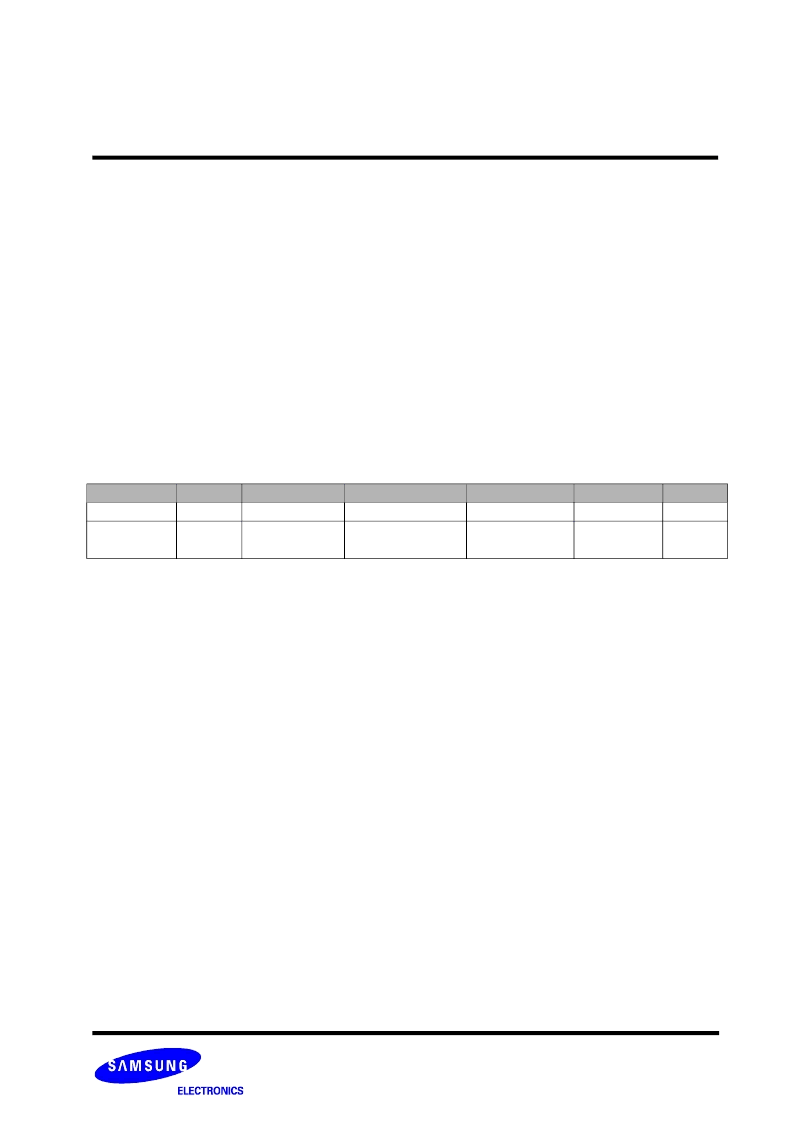- 您現(xiàn)在的位置:買賣IC網(wǎng) > PDF目錄382301 > MC4GH02GNMCA-2SA00 (SAMSUNG SEMICONDUCTOR CO. LTD.) SAMSUNG MultiMediaCard PDF資料下載
參數(shù)資料
| 型號: | MC4GH02GNMCA-2SA00 |
| 廠商: | SAMSUNG SEMICONDUCTOR CO. LTD. |
| 英文描述: | SAMSUNG MultiMediaCard |
| 中文描述: | 三星多媒體 |
| 文件頁數(shù): | 58/102頁 |
| 文件大小: | 1384K |
| 代理商: | MC4GH02GNMCA-2SA00 |
第1頁第2頁第3頁第4頁第5頁第6頁第7頁第8頁第9頁第10頁第11頁第12頁第13頁第14頁第15頁第16頁第17頁第18頁第19頁第20頁第21頁第22頁第23頁第24頁第25頁第26頁第27頁第28頁第29頁第30頁第31頁第32頁第33頁第34頁第35頁第36頁第37頁第38頁第39頁第40頁第41頁第42頁第43頁第44頁第45頁第46頁第47頁第48頁第49頁第50頁第51頁第52頁第53頁第54頁第55頁第56頁第57頁當前第58頁第59頁第60頁第61頁第62頁第63頁第64頁第65頁第66頁第67頁第68頁第69頁第70頁第71頁第72頁第73頁第74頁第75頁第76頁第77頁第78頁第79頁第80頁第81頁第82頁第83頁第84頁第85頁第86頁第87頁第88頁第89頁第90頁第91頁第92頁第93頁第94頁第95頁第96頁第97頁第98頁第99頁第100頁第101頁第102頁

MultiMediaCard
TM
58
Sep.22.2005
Revision 0.3
6.7 Commands
6.7.1 Command Types
There are four kinds of commands defined to control the MultiMediaCard:
* broadcast commands (bc), no response
* broadcast commands with response (bcr)
* addressed (point-to-point) commands (ac), no data transfer on DAT lines
* addressed (point-to-point) data transfer commands (adtc), data transfer on DAT lines
* All commands and responses are sent over the CMD line of the MultiMediaCard bus. The command transmission
always starts with the left bit of the bitstring corresponding to the command codeword.
6.7.2 Command Format
All commands have a fixed code length of 48 bits, needing a transmission time of 0.92 microSec @ 52 MHz
A command always starts with a start bit (always ‘0’), followed by the bit indicating the direction of transmission (host = ‘1’).
The next 6 bits indicate the index of the command, this value being interpreted as a binary coded number (between 0 and
63). Some commands need an argument (e.g. an address), which is coded by 32 bits. A value denoted by ‘x’ in the table
above indicates this variable is dependent on the command. All commands are protected by a CRC (see Chapter 6.4 for
the definition of CRC7). Every command codeword is terminated by the end bit (always ‘1’). All commands and their argu-
ments are listed in Table 6-9 -Table 6-17.
6.7.3 Command Classes
The command set of the MultiMediaCard system is divided into several classes (See Table 6-8). Each class supports a
subset of card functions.
Class 0 is mandatory and shall be supported by all cards. The other classes are either mandatory only for specific card
types or optional. The supported Card Command Classes (CCC) are coded as a parameter in the card specific data
(CSD) register of each card, providing the host with information on how to access the card.
Bit position
Width (bits)
Value
Description
47
1
‘0’
46
1
‘1’
[45:40]
6
x
[39:8]
32
x
argument
[7:1]
7
x
CRC7
0
1
‘1’
start bit
transmission bit
command index
end bit
Table 6-7 : Format (0.92us @52MHz)
相關PDF資料 |
PDF描述 |
|---|---|
| MC206 | THIN SMD LOW/MEDIUM-FREQUENCY CRYSTAL UNIT |
| MC2300 | Navigator Motion Processor |
| MC26LS30 | Dual Differential Quad Single-Ended (EIA-423-A) Line Drivers |
| MC26LS30D | CABLE GLAND, PG29 |
| MC26LS30DR2 | Dual Differential Quad Single-Ended (EIA-423-A) Line Drivers |
相關代理商/技術參數(shù) |
參數(shù)描述 |
|---|---|
| MC4M | 制造商:G & J HALL 功能描述:STEP DRILL MULTICUT 4-12MM X 2MM 制造商:G & J HALL 功能描述:STEP DRILL, MULTICUT, 4-12MM X 2MM |
| MC-4-MALE | 制造商:Multi-Contact USA 功能描述: |
| MC4MANUAL | 制造商:Omron Corporation 功能描述: |
| MC-4R128CEE6B | 制造商:NEC 制造商全稱:NEC 功能描述:Direct Rambus DRAM RIMM Module 128M-BYTE 64M-WORD x 16-BIT |
| MC-4R128CEE6B-653 | 制造商:NEC 制造商全稱:NEC 功能描述:Direct Rambus DRAM RIMM Module 128M-BYTE 64M-WORD x 16-BIT |
發(fā)布緊急采購,3分鐘左右您將得到回復。